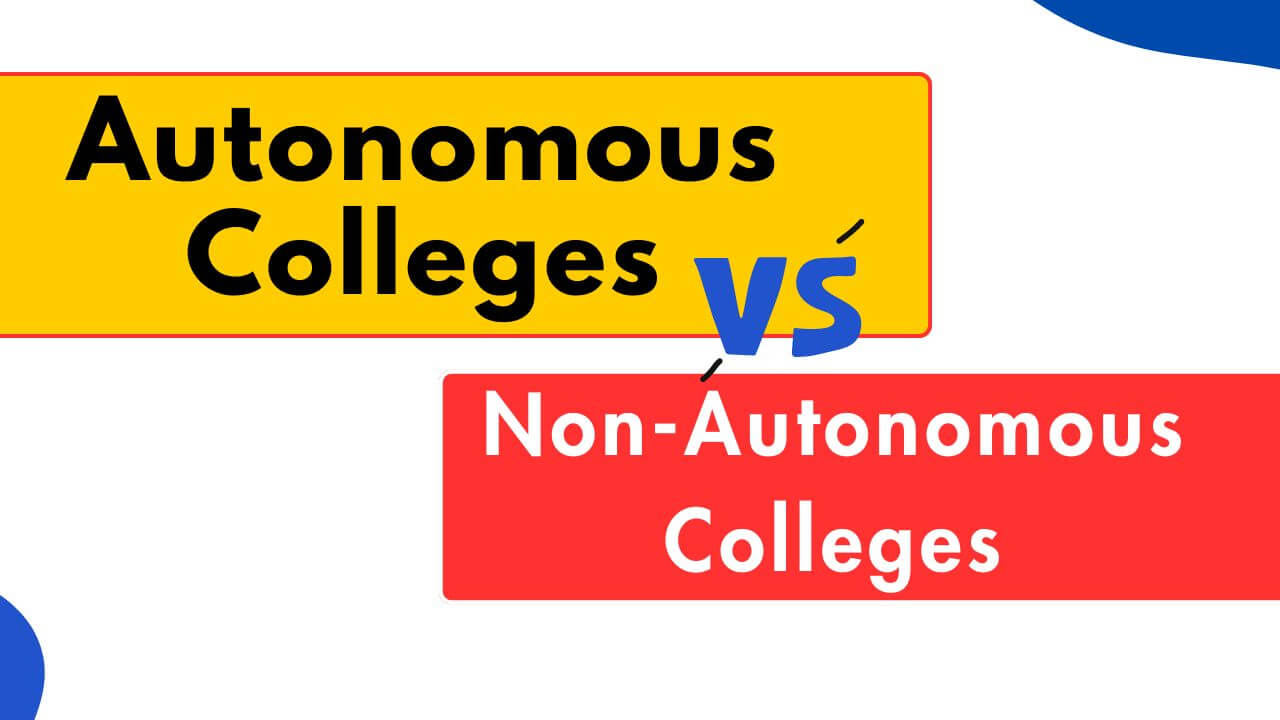autonomous vs non autonomous college
Autonomous vs Non Autonomous College
The main difference between autonomous and non-autonomous colleges are amount of control and freedom each type has over academic and administrative affairs. Here’s a point-by-point comparison:
Autonomous Colleges
Academic Independence:
- Autonomy in Education Modules Plan: They have the Flexibility to plan the Education Programs of their programs such that they may be changed from time to time in light of the up-and-coming industry patterns and academic developments.
- Examination and Assessment – These institutions carry out their own examinations and assessment system that is off their college. Which provides more flexibility to evaluate functionalities in different ways.
- Degree Awarding: The degree here in this case will only be given by the affiliating university, The autonomous college name appears on the final result.
Administrative Control:
- Governance: Autonomous colleges have their own governing body that takes decisions on academic policies, regulations, and administrative matters.
- Flexibility: They can make changes to new courses and programs without needing prior approval from the university.
Quality and Innovation:
Quality Enhancement:
- Autonomy often leads to a higher quality of education, as the institution can focus on areas of improvement without external constraints.
- Innovative Practices: The flexibility to innovate in teaching methods, course content, and student evaluation.
Non-Autonomous Colleges
Academic Dependency:
- Curriculum Plan: Non-autonomous colleges follow the curriculum designed by the affiliating university. They have less flexibility to introduce new topics or courses independently.
- Examination and Assessment: Examinations are conducted and evaluated by the affiliating university. The college follows to the plans and methods set by the university.
- Degree Awarding: The degree is awarded solely by the affiliating university without mention of the college on the degree certificate.
Administrative Control:
- Governance: Non-autonomous colleges are governed by the rules and regulations set by the affiliating university and often have less control over administrative decisions.
- Limited Flexibility: Any changes in courses, programs, or policies typically require approval from the university, making the process slower and less adaptable.
Standardization:
- Uniformity: The instruction given is more standardized across all colleges associated with the same university, ensuring a uniform level of education.
- Consistency: The assessment and examination processes are consistent across all affiliated colleges, providing a common benchmark for student performance.



